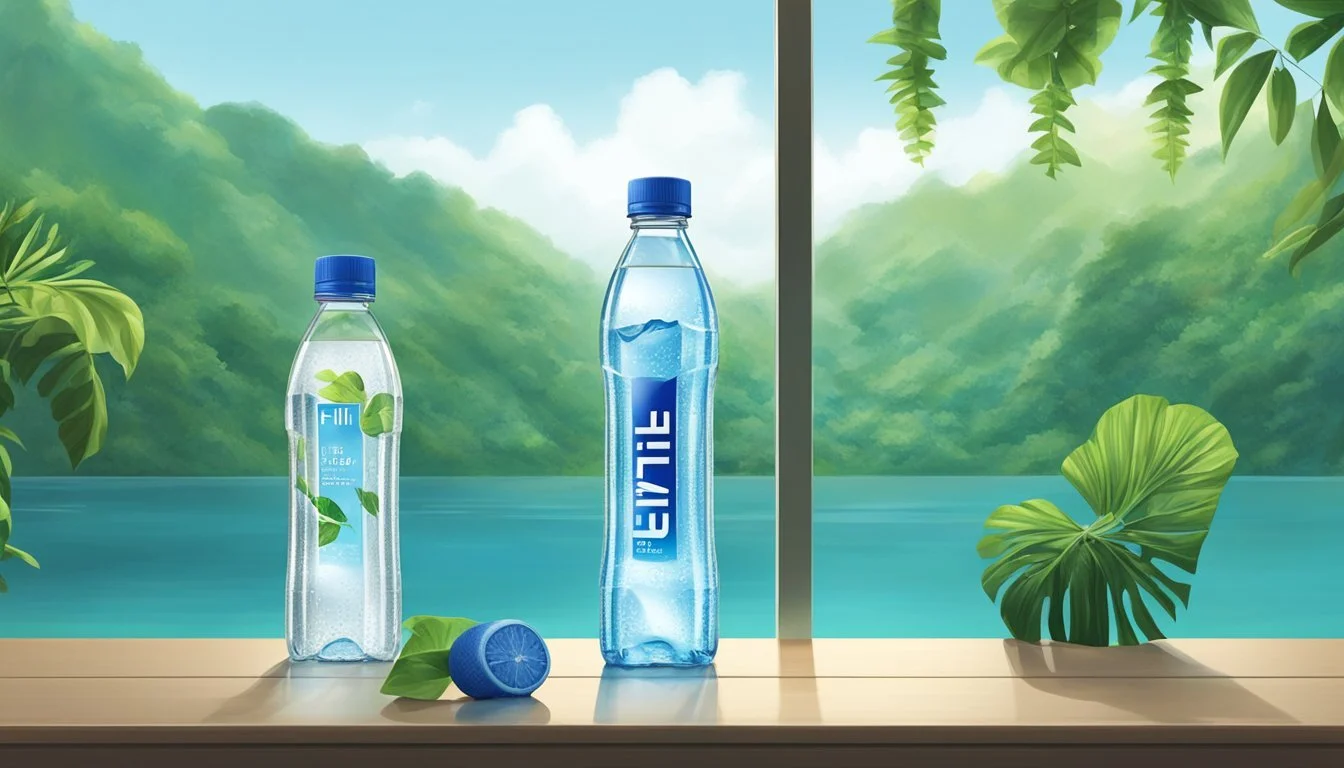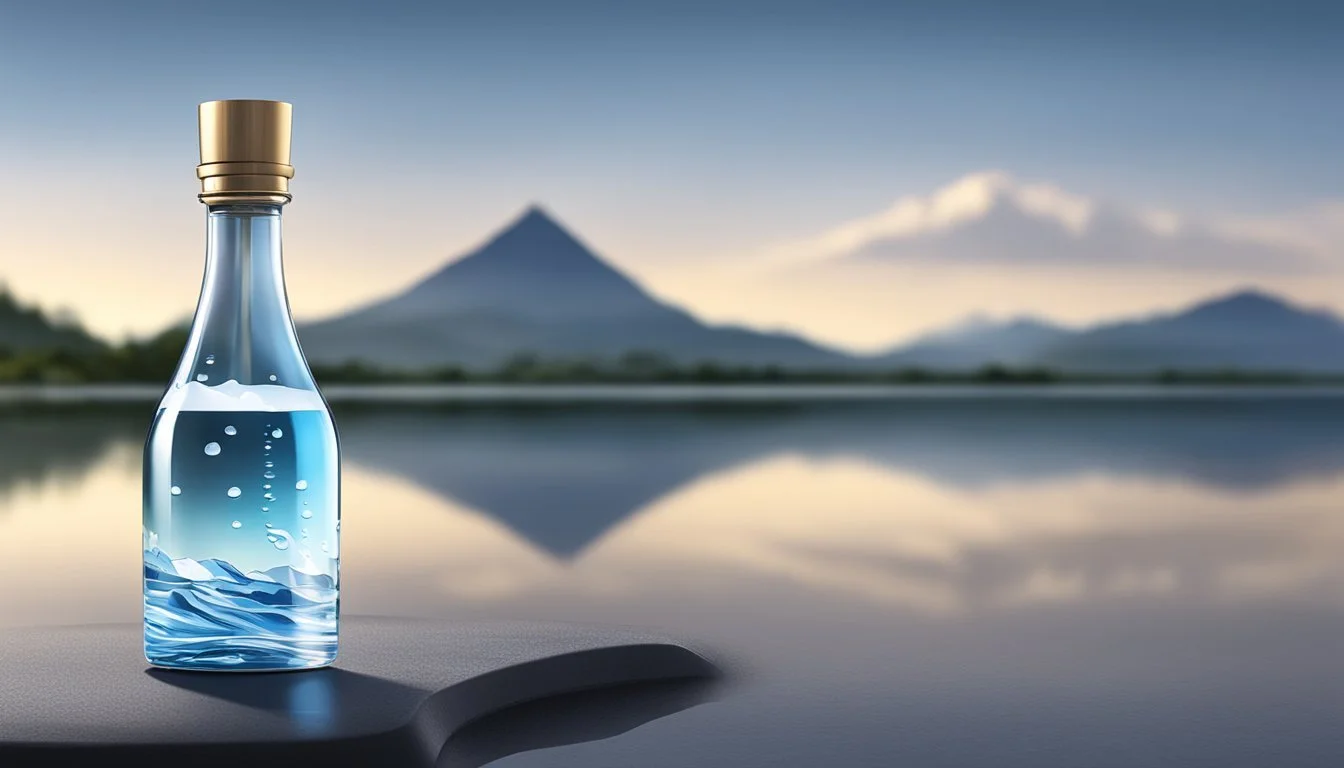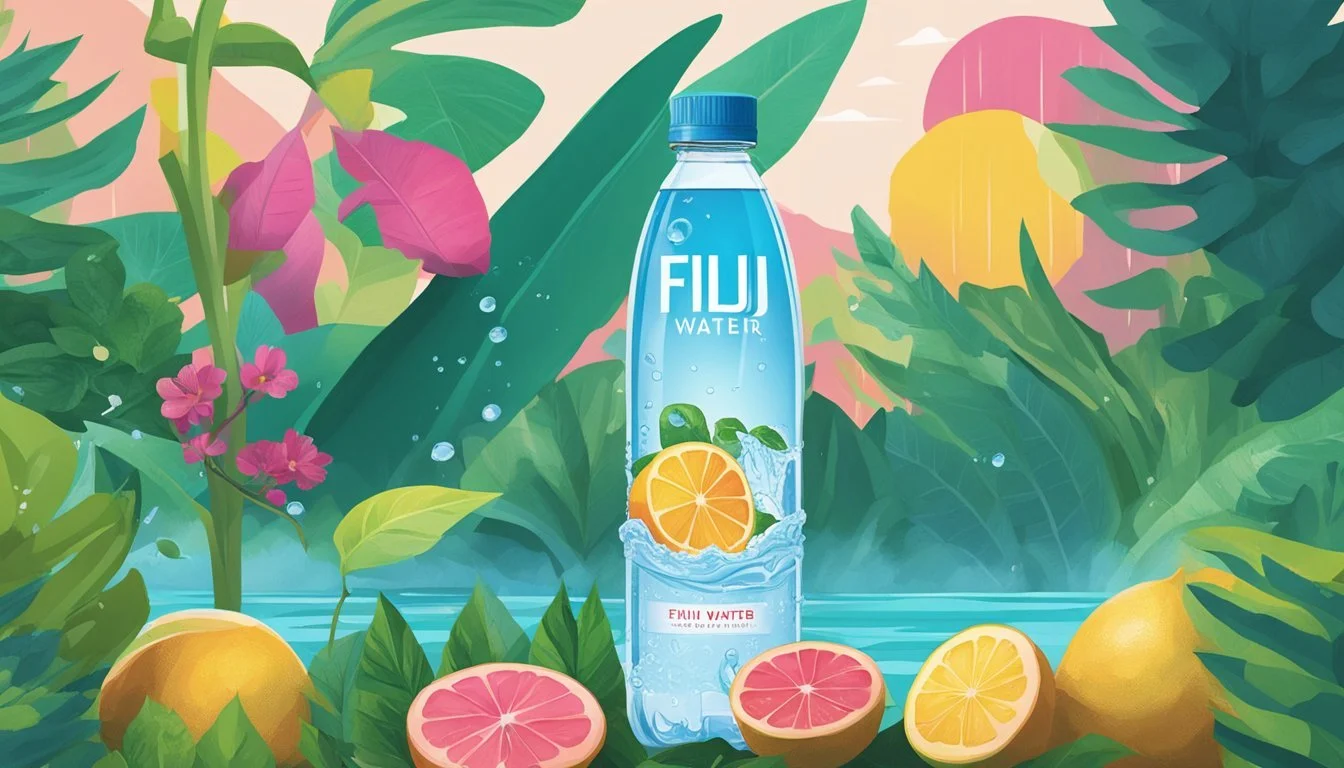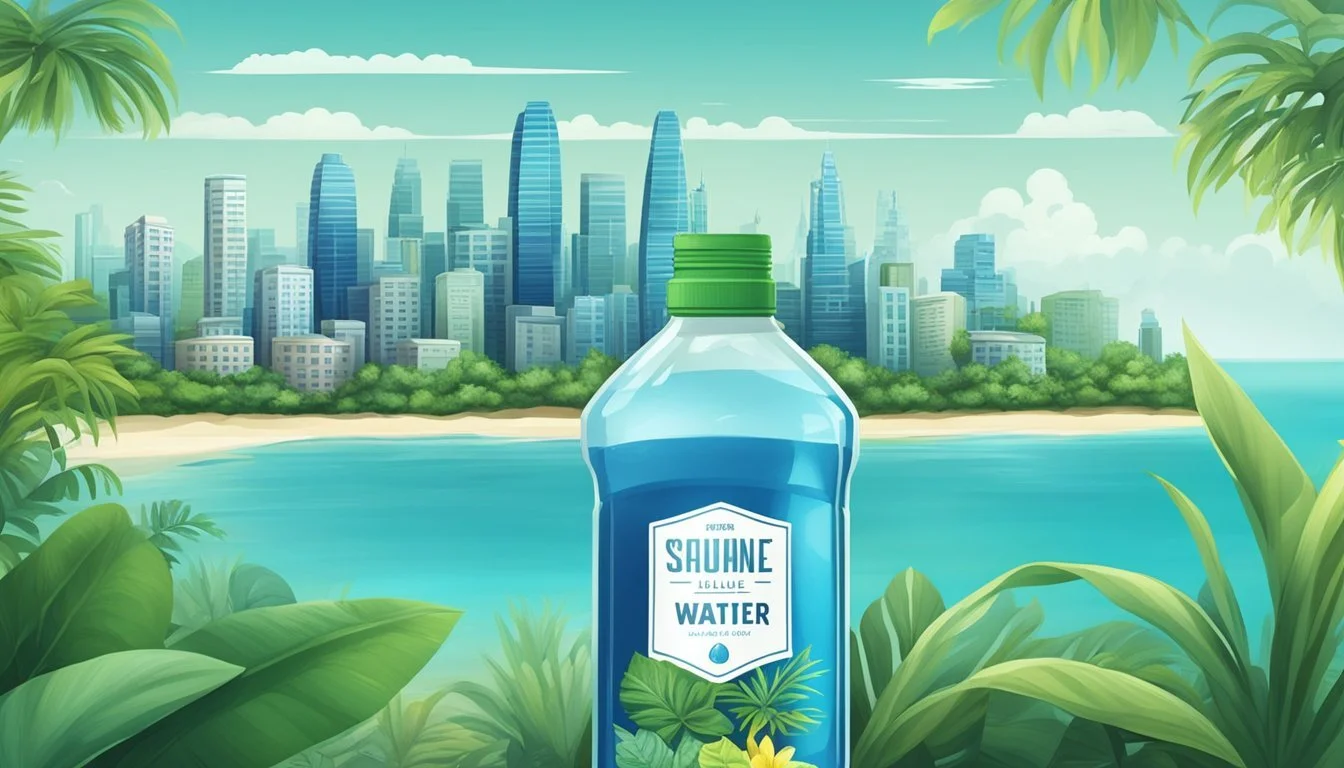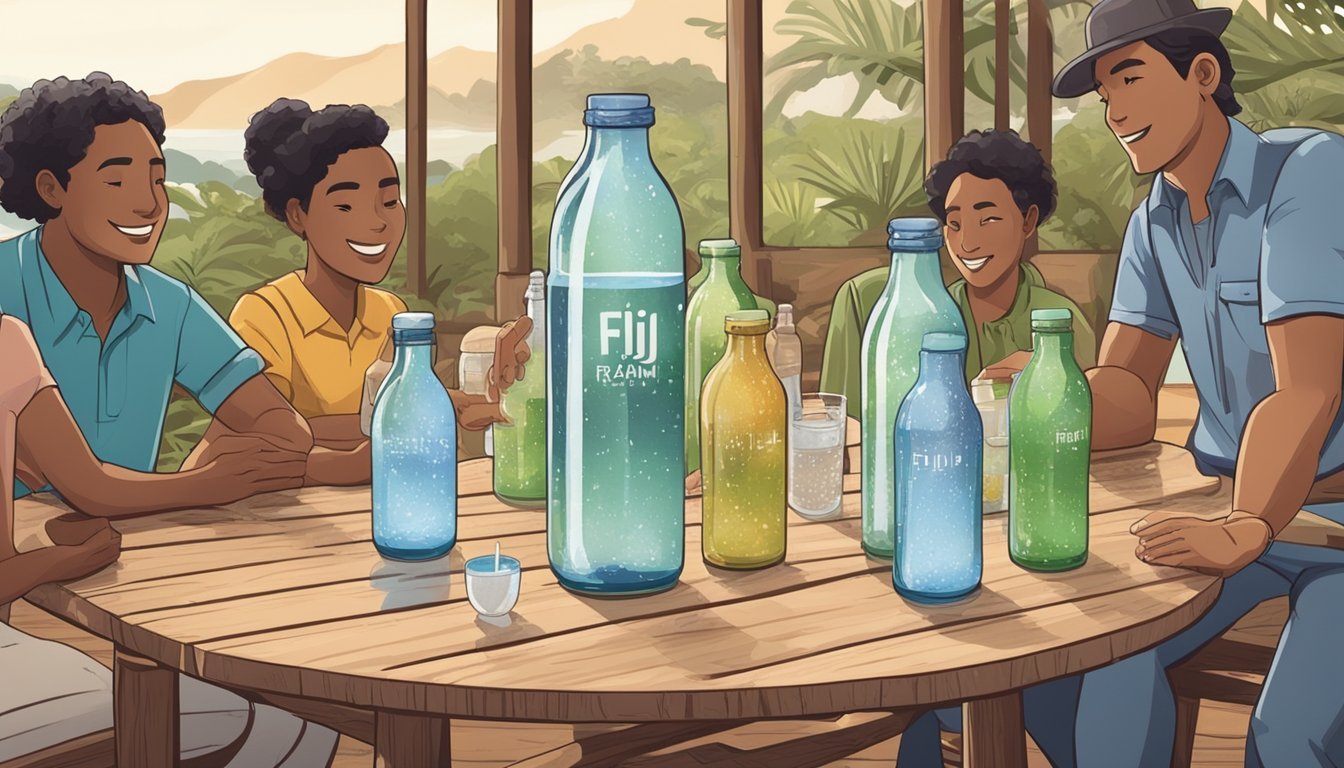Fiji vs. Talking Rain AQA
Comparing Premium Bottled Water Brands
When it comes to bottled water, the battle between Fiji and Talking Rain AQA captures the attention of consumers who prioritize hydration and purity. Fiji Water, sourced from an artesian aquifer in the remote Fiji Islands, boasts a unique mineral profile and has established a reputation for its smooth taste and high quality. On the other hand, Talking Rain AQA, an emerging brand known for its purified, electrolyte-enhanced water, appeals to those looking for functional hydration with a crisp and refreshing taste.
For consumers who prioritize natural sourcing and pristine water quality, Fiji Water is an excellent choice. Its naturally high silica content and balanced pH make it a popular option among health-conscious individuals. Talking Rain AQA, with its added electrolytes, caters to those who seek enhanced hydration benefits, particularly athletes or active individuals.
Both Fiji and Talking Rain AQA meet the fundamental need for clean and refreshing bottled water, but their unique qualities cater to different consumer preferences. Whether it's the organic allure of Fiji's untouched aquifers or the modern advantages of Talking Rain AQA's electrolyte enhancement, each brand offers a distinct hydration experience.
Comparative Overview of Fiji and Talking Rain AQA
Fiji Water and Talking Rain AQA stand out as notable choices in the premium bottled water market.
Fiji Water is well-regarded for its natural artesian origins from the Fiji Islands. The water is filtered through volcanic rock, giving it a unique mineral profile.
Talking Rain AQA, produced by Talking Rain Beverage Company, offers ionized water with a pH level of 9.5+ and added electrolytes. This formulation targets health-conscious consumers who are looking for enhanced hydration.
Feature Fiji Water Talking Rain AQA Source Natural artesian from Fiji Islands Purified, ionized with added electrolytes and minerals pH Level ~7.7 9.5+ Mineral Content Natural minerals from volcanic rocks Enhanced with electrolytes Bottle Size 500 ml, 1 liter, 1.5 liters 1 liter, 20 oz (coming soon)
Market Position: Fiji Water is seen as a luxury brand and is priced higher than many competitors. Its packaging is iconic, featuring the Fiji Islands imagery.
Talking Rain AQA, introduced in 2021, offers a more health-targeted product with its high pH level and added electrolytes. It is positioned to appeal to both premium and health-centric segments.
Despite their differences, both brands emphasize purity and quality. Fiji Water leans on its natural source, while Talking Rain AQA focuses on enhanced hydration benefits.
Taste and Flavor Profile
Fiji and Talking Rain AQA carry distinctive taste characteristics derived from their unique sources and mineral compositions. Each brand provides a unique flavor experience that appeals to different preferences.
Understanding Taste Nuances
Fiji Water is recognized for its smooth, soft taste. This is attributed to its natural filtration through volcanic rock, which introduces minerals like silica. The result is a clean and crisp flavor with a subtly sweet aftertaste. This gives it a luxurious feel as it glides over the palate.
Talking Rain AQA offers a slightly different experience. Known for its refreshing taste, AQA11 combines pure water with added electrolytes. This addition enhances the water's taste, making it particularly appealing for those seeking a hydrating and invigorating drink. The flavor profile is clean and straightforward without the complex mineral aftertaste found in Fiji.
Flavor Additives and Their Effects
Fiji Water's distinctive taste stems from its natural mineral content. Minerals like calcium, magnesium, and silica not only enhance the taste but also contribute to its silky texture. These natural additives distinguish Fiji as a premium option.
Conversely, Talking Rain AQA incorporates added electrolytes to boost its flavor and hydration properties. These electrolytes, typically including potassium and sodium, provide a balanced and refreshing taste. This makes AQA11 a preferred choice for active individuals and athletes who prioritize electrolyte replenishment.
In summary, Fiji's natural mineral content gives it a unique flavor profile, while Talking Rain AQA's added electrolytes result in a refreshing and hydrating experience. Each caters to different taste preferences and hydration needs.
Health Implications and Benefits
Both Fiji and Talking Rain AQA bottled waters offer unique health benefits stemming from their mineral composition, electrolyte content, and pH levels.
Mineral Composition and Benefits
Fiji Water contains several minerals, including calcium, magnesium, and silica. Calcium supports bone health, while magnesium aids in muscle function and energy production. Analyzing the mineral content:
Calcium: Approximately 17.9 mg/L
Magnesium: Around 14.7 mg/L
Silica: About 93.4 mg/L
Talking Rain AQA's mineral content is not extensively documented, but it is known for containing balanced electrolytes.
Electrolyte Content and Hydration
Electrolytes are crucial for maintaining hydration and supporting bodily functions. Fiji Water includes natural electrolytes like sodium and potassium:
Potassium: 4.9 mg/L
Sodium: 17.8 mg/L
Talking Rain AQA is also formulated with added electrolytes, making it effective for hydration, which helps in muscle function and overall energy levels.
pH Levels and Alkalinity
Fiji Water has a naturally occurring pH of around 7.7 – 7.9, making it slightly alkaline. Alkaline water can neutralize acid in the body, potentially reducing acid reflux symptoms. Talking Rain AQA is designed to have a consistent pH level, often slightly alkaline, supporting balanced pH in the body.
Overall, both waters offer hydration with the added benefits of important minerals and electrolytes. Each is formulated to provide health benefits, although their specific compositions and levels of nutrients differ.
Analyzing Water Purity and Quality
Fiji Water and Talking Rain AQA are two prominent brands. This section explores their purity and quality through their filtration methods and certifications.
Contaminants and Filtration Processes
Fiji Water is renowned for its natural artesian water source in Viti Levu, Fiji. The water undergoes a natural filtration process through volcanic rock, which can enhance its mineral content, including silica, but it raises concerns about plastic packaging and potential microplastics.
Talking Rain AQA, on the other hand, utilizes advanced filtration processes, including reverse osmosis. This ensures the removal of contaminants like chlorine and harmful minerals. The filtration process aims to produce purified water with minimal impurities, often excluding beneficial minerals in an effort to maintain purity.
Purity Testing and Certification
Fiji Water adheres to rigorous testing protocols. It is tested for various contaminants and is certified by health and safety authorities. This certification instills trust in its purity and quality, though the sourcing of such water in plastic bottles remains a point of debate.
Talking Rain AQA is also subject to stringent purity tests. It often showcases certifications from organizations like the NSF (National Sanitation Foundation). This certification validates that the water meets high standards for purity and is free from harmful contaminants.
Environmental Sustainability and Impact
When comparing Fiji and Talking Rain AQA, critical elements include the materials used for packaging and the sustainability of water sourcing. Both aspects significantly impact their overall environmental footprint.
Packaging Materials and Recycling
Fiji Water packages its products in single-use plastic bottles. Despite shifting to 100% recycled plastic in the U.S. for their 500 mL and 330 mL bottles, there is still an environmental cost tied to plastic production and disposal. Single-use plastics are a major pollutant, contributing heavily to oceanic and terrestrial waste.
Talking Rain AQA, on the other hand, commits to using PET bottles, which are also recyclable. Their bottles are made with significant portions of recycled content, thus minimizing their environmental impact. While both brands use plastic, the extent to which they incorporate recycled materials varies, influencing their overall sustainability efforts.
Source Sustainability and Water Management
Fiji Water sources its water from an aquifer in Fiji, often marketed as pure and untouched. This idyllic source, however, raises concerns about over-extraction and the potential impact on local water supplies and ecosystems. Sustainable water management practices are essential to avoid depleting this natural resource.
Talking Rain AQA sources water primarily from municipal supplies and natural springs. By leveraging more readily available water sources, they can potentially reduce the environmental stress on less accessible aquifers. Their approach emphasizes responsible water stewardship and reflects a commitment to maintaining ecological balance.
In summary, both brands show efforts toward environmentally friendly practices, yet the methods and efficacy of these practices differ. Packaging materials and water source sustainability are key areas where these differences become apparent.
Production and Sourcing Insights
Fiji Water and Talking Rain AQA differ significantly in their extraction methods and water sources. It's essential to understand these aspects to appreciate their qualities and potential environmental impacts.
Extraction and Production Methods
Fiji Water: Fiji Water is sourced from an artesian aquifer located in the Viti Levu island of Fiji. The extraction process involves tapping directly into the aquifer, ensuring minimal human contact. This method helps maintain the purity and natural mineral content of the water.
Talking Rain AQA: Talking Rain AQA, on the other hand, utilizes a different approach. It sources its water from a natural spring, ensuring that the water undergoes rigorous filtration processes to remove impurities. This results in water that retains its freshness and essential minerals while being safe for consumption.
Both brands employ advanced bottling facilities to package the water, adhering to stringent health and safety standards.
Artesian Aquifer vs. Natural Spring Sources
Fiji Water: Originating from an artesian aquifer, Fiji Water benefits from being encapsulated beneath layers of impermeable rock, providing natural filtration. This isolation protects it from external contaminants, preserving its mineral-rich profile.
Talking Rain AQA: Conversely, Talking Rain AQA's natural spring source provides water that emerges naturally at the earth's surface. This source type often requires less intensive extraction methods, which can be more environmentally friendly. However, the water must be carefully monitored and treated to ensure purity.
Each source offers unique advantages: Fiji Water's artesian aquifer ensures high purity levels through natural filtration, while Talking Rain AQA's natural spring provides naturally fresh water with a simple extraction process.
By understanding these sourcing methods, consumers can make informed choices based on their preferences for purity, mineral content, and environmental impact.
Price Comparison and Consumer Value
This section will analyze the market pricing of Fiji and Talking Rain AQA bottled waters and explore how each brand balances cost with quality and sustainability.
Market Pricing and Positioning
Fiji Water typically positions itself as a premium bottled water brand. With prices ranging from approximately $2.00 to $2.50 for a 500ml bottle, it caters to consumers who prioritize taste and branding. The higher price reflects its source from an aquifer in Fiji, which is marketed as offering superior taste and purity.
Talking Rain AQA, meanwhile, often aims at a mid-tier market. Pricing usually hovers around $1.20 to $1.50 for a 500ml bottle. This price point appeals to value-conscious consumers seeking quality water without the premium cost. Despite being more affordable, Talking Rain AQA emphasizes its enrichment with electrolytes, appealing to health-conscious buyers.
Balancing Cost with Quality and Sustainability
When evaluating the balance of cost, quality, and sustainability, Fiji Water and Talking Rain AQA present distinct approaches.
Fiji Water highlights its natural artesian source and pristine quality. However, some argue that the environmental impact of bottling water in Fiji and shipping it globally undermines its value for money. The higher cost doesn't solely reflect quality but also the logistical expenses and branding.
Talking Rain AQA, sourced domestically, emphasizes both quality and sustainability. The brand uses eco-friendly packaging and sources its water responsibly. This approach allows consumers to enjoy quality bottled water at a more affordable price while supporting more sustainable practices.
Both brands cater to different market segments but provide clear value propositions. Fiji Water appeals to those willing to pay a premium for exclusivity and perceived purity. Talking Rain AQA offers a more cost-effective yet high-quality alternative, emphasizing sustainability and health benefits.
Packaging Options and Convenience
Both Fiji and Talking Rain AQA offer diverse packaging choices aimed at enhancing user convenience and minimizing environmental impact.
Bottle Design and Transportation
Fiji Water utilizes a distinct packaging approach, primarily relying on single-use plastic bottles. These bottles are lightweight, making them easy to transport and carry. However, the environmental impact due to plastic use can be concerning. Plastic bottles can contribute significantly to pollution and take centuries to decompose in landfills.
In contrast, Talking Rain AQA opts for more environmentally conscious options, incorporating both plastic and aluminum cans. Aluminum is often viewed as a more sustainable choice because it is highly recyclable. The different materials also offer variations in durability and temperature retention, catering to various consumer preferences and needs.
Retail Availability and Consumer Accessibility
Fiji Water is widely available across an array of retailers, including supermarkets, convenience stores, and online platforms. Its broad distribution network ensures that consumers can easily access it almost anywhere they shop. This high level of availability boosts its convenience factor significantly.
Talking Rain AQA, though not as universally available as Fiji, is still found in many major retail outlets. The brand has also made strides in e-commerce, allowing consumers to purchase their products online. While the availability might be somewhat less extensive compared to Fiji, the efforts in diverse retail channels add a level of convenience for their customers.
Brand Presence and Consumer Perception
Fiji Water and Talking Rain AQA have made significant impacts in the bottled water market through distinct marketing strategies and consumer feedback. This section examines their marketing reach and influence, as well as public and expert opinions.
Marketing Influence and Reach
Fiji Water has positioned itself as a premium bottled water brand with global recognition. Its marketing often emphasizes the natural artesian origins and pristine quality.
Talking Rain AQA, launched as a high pH water with added electrolytes, uses a more health-focused marketing angle. The brand highlights the water's ionized properties and benefits. Advertising efforts for AQA11 focus on appealing to health-conscious consumers.
Both brands use social media and influencer partnerships effectively. Fiji leverages its luxury image, while AQA11 emphasizes health benefits.
Public and Expert Opinions on Bottled Water Brands
In consumer surveys, Fiji is often ranked highly for taste and brand favorability. A Morning Consult survey found Fiji holds the highest net favorability among U.S. adults. Experts, including water sommeliers, appreciate Fiji’s unique mineral profile.
Talking Rain AQA, while newer, has received positive feedback for its high pH level and taste. Health enthusiasts and some water experts commend its electrolyte content. Despite its relatively recent market entry, consumer perception is generally favorable, especially among those seeking functional beverages.
More About Fiji
Fiji vs Mountain Valley Spring Water: Which Bottled Water is Better?
Fiji vs Whole Foods Italian Still Mineral water: Which Bottled Water is Better?
More About Talking Rain AQA
Acqua Pana vs Talking Rain AQA: Which Bottled Water is Better?
Alkaline88 vs Talking Rain AQA: Which Bottled Water is Better?
Antipodes vs Talking Rain AQA: Which Bottled Water is Better?
Aqua Carpatica vs Talking Rain AQA: Which Bottled Water is Better?
Aquafina vs Talking Rain AQA: Which Bottled Water is Better?
Arrowhead vs Talking Rain AQA: Which Bottled Water is Better?
Big Chill vs Talking Rain AQA: Which Bottled Water is Better?
Boxed Water vs Talking Rain AQA: Which Bottled Water is Better?
Cascade Mountain vs Talking Rain AQA: Which Bottled Water is Better?
Castle Rock vs Talking Rain AQA: Which Bottled Water is Better?
Core Hydration vs Talking Rain AQA: Which Bottled Water is Better?
Crystal Geyser vs Talking Rain AQA: Which Bottled Water is Better?
Deer Park vs Talking Rain AQA: Which Bottled Water is Better?
Essentia vs Talking Rain AQA: Which Bottled Water is Better?
Hawaii Volcanic vs Talking Rain AQA: Which Bottled Water is Better?
Hawaiian Springs vs Talking Rain AQA: Which Bottled Water is Better?
Ice Mountain vs Talking Rain AQA: Which Bottled Water is Better?
Icelandic Glacial vs Talking Rain AQA: Which Bottled Water is Better?
Just Water vs Talking Rain AQA: Which Bottled Water is Better?
Liquid Death vs Talking Rain AQA: Which Bottled Water is Better?
Mananalu vs Talking Rain AQA: Which Bottled Water is Better?
Mountain Valley Spring Water vs Talking Rain AQA: Which Bottled Water is Better?
Nestle Pure Life vs Talking Rain AQA: Which Bottled Water is Better?
Poland Spring vs Talking Rain AQA: Which Bottled Water is Better?
Purely Sedona vs Talking Rain AQA: Which Bottled Water is Better?
Richard's Rainwater vs Talking Rain AQA: Which Bottled Water is Better?
San Pellegrino vs Talking Rain AQA: Which Bottled Water is Better?
Simple Truth vs Talking Rain AQA: Which Bottled Water is Better?
Smartwater vs Talking Rain AQA: Which Bottled Water is Better?
Solan de Cabras vs Talking Rain AQA: Which Bottled Water is Better?
Talking Rain AQA vs 1907water: Which Bottled Water is Better?
Talking Rain AQA vs 7-Select: Which Bottled Water is Better?
Talking Rain AQA vs BodyArmor: Which Bottled Water is Better?
Talking Rain AQA vs CBD Living: Which Bottled Water is Better?
Talking Rain AQA vs Crystal Lake: Which Bottled Water is Better?
Talking Rain AQA vs Essence pH10: Which Bottled Water is Better?
Talking Rain AQA vs Kirkland Signature: Which Bottled Water is Better?
Talking Rain AQA vs Open Water: Which Bottled Water is Better?
Talking Rain AQA vs Proud Source: Which Bottled Water is Better?
Talking Rain AQA vs Pure Life: Which Bottled Water is Better?
Talking Rain AQA vs Refreshe: Which Bottled Water is Better?
Talking Rain AQA vs Weird Water: Which Bottled Water is Better?
Talking Rain AQA vs Whole Foods 365: Which Bottled Water is Better?
The Well vs Talking Rain AQA: Which Bottled Water is Better?
Topo Chico vs Talking Rain AQA: Which Bottled Water is Better?
Tru Alka vs Talking Rain AQA: Which Bottled Water is Better?
Whole Foods Italian Still Mineral water vs Talking Rain AQA: Which Bottled Water is Better?
Zephyrhills vs Talking Rain AQA: Which Bottled Water is Better?

